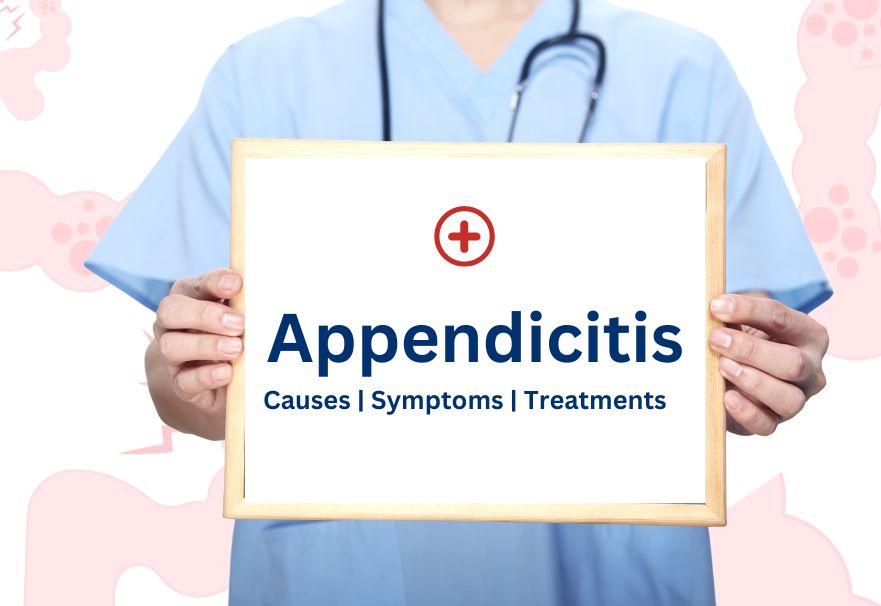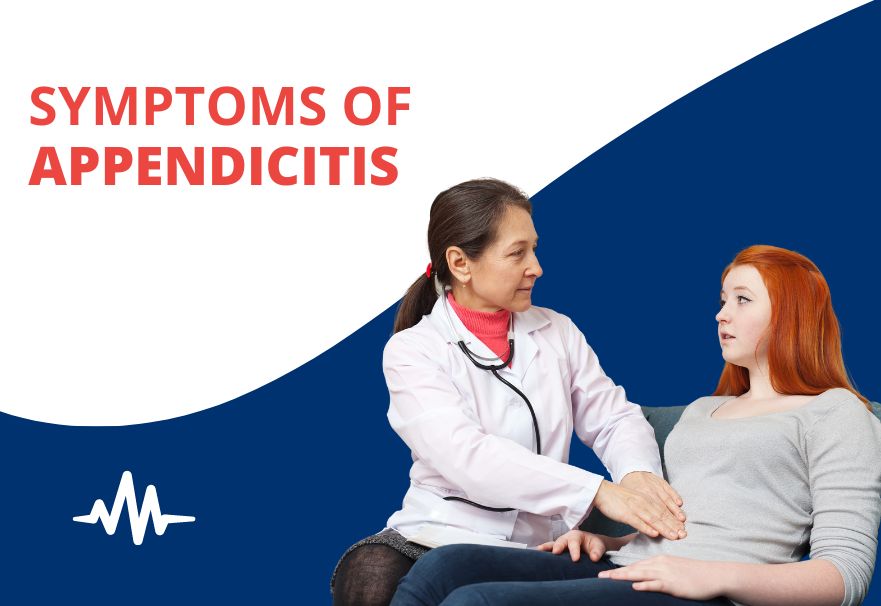Appendicitis:
Causes, Symptoms, and Treatments

Appendicitis is a medical condition characterized by inflammation of the appendix. It is a serious condition that requires prompt medical attention. If left untreated, appendicitis can lead to complications such as a ruptured appendix and peritonitis, which can be life-threatening. In this article, we will explore the causes, symptoms, and treatments of appendicitis, providing you with essential information to understand and identify this condition.
Anatomy and Function of the Appendix
Before delving into the causes and symptoms of appendicitis, it is important to understand the anatomy and function of the appendix. The appendix is a small, finger-shaped organ located in the lower right abdomen. While its exact function is still a subject of debate, it is believed to play a role in the immune system and gut health.
Causes of Appendicitis
The exact cause of appendicitis is not always clear, but it is often related to an obstruction in the appendix. The obstruction can be caused by various factors, including:
- Fecal Matter: Fecal matter can block the opening of the appendix, leading to inflammation.
- Enlarged Lymph Nodes: Inflammation of nearby lymph nodes can compress the appendix, causing obstruction.
- Foreign Bodies: Objects such as seeds or parasites can enter the appendix and cause an obstruction.
- Tumors: In rare cases, tumors can develop in the appendix and obstruct its normal function.

Symptoms of Appendicitis
Recognizing the symptoms of appendicitis is crucial for early detection and treatment. The common symptoms include:
- Abdominal Pain: The most prominent symptom of appendicitis is abdominal pain. The pain usually starts around the navel and migrates to the lower right abdomen.
- Loss of Appetite: Appendicitis can cause a decrease in appetite and a general feeling of nausea.
- Fever: A low-grade fever is often present in individuals with appendicitis.
- Nausea and Vomiting: Nausea and vomiting may occur due to the inflammation in the abdomen.
Diagnosis of Appendicitis
Diagnosing appendicitis involves a combination of medical history, physical examination, and diagnostic tests. The healthcare provider may perform the following:
- Medical History: The healthcare provider will ask about the symptoms and their duration.
- Physical Examination: The abdomen will be examined for tenderness and signs of inflammation.
- Blood Tests: A complete blood count can indicate elevated white blood cell count, which is a sign of infection.
- Imaging Tests: Imaging tests such as ultrasound or CT scan may be ordered to visualize the appendix and identify any abnormalities.
Complications of Appendicitis
If appendicitis is not treated promptly, it can lead to complications such as:
- Ruptured Appendix: If the inflammation progresses, the appendix can rupture, leading to the release of bacteria and fecal matter into the abdominal cavity.
- Peritonitis: Peritonitis is the inflammation of the peritoneum, the lining of the abdominal cavity. It can occur as a result of a ruptured appendix and can be life-threatening.
Treatment of Appendicitis
Have Any Question?
Are you looking for a Solution for your problem? You can call us or just drop your question here.
The standard treatment for appendicitis is surgical removal of the appendix, known as an appendectomy. There are two main types of appendectomy:
- Open Appendectomy: In an open appendectomy, a small incision is made in the abdomen, and the appendix is removed.
- Laparoscopic Appendectomy: A laparoscopic appendectomy is a minimally invasive procedure where several small incisions are made, and a camera and surgical instruments are used to remove the appendix.
Recovery and Aftercare
After an appendectomy, it is important to take proper care and follow the healthcare provider’s instructions for a smooth recovery. Some aftercare tips include:
- Pain Management: Pain medication may be prescribed to manage post-surgical pain.
- Rest and Recovery: It is important to rest and avoid strenuous activities during the recovery period.
- Incision Care: Proper care of the incision site is essential to prevent infection. Follow the healthcare provider’s instructions for dressing changes and keeping the area clean.
Prevention of Appendicitis
While it is not always possible to prevent appendicitis, there are some measures that can potentially reduce the risk:
- Healthy Diet: Consuming a balanced diet rich in fibre may help maintain bowel regularity and reduce the risk of faecal matter obstruction.
- Hydration: Staying hydrated helps in maintaining overall gut health and preventing dehydration-related complications.
- Prompt Treatment of Infections: Treating infections promptly can prevent the spread of bacteria and reduce the risk of appendicitis.
Conclusion
In conclusion, appendicitis is a condition characterized by inflammation of the appendix. It is important to recognize the symptoms and seek prompt medical attention to avoid complications. Surgical removal of the appendix is the standard treatment for appendicitis. Following the healthcare provider’s instructions during the recovery period is crucial for a smooth and successful recovery. While it may not always be possible to prevent appendicitis, maintaining a healthy lifestyle and seeking timely treatment for infections can potentially reduce the risk.
Remember, if you experience symptoms such as severe abdominal pain, fever, and nausea, it is important to consult a healthcare professional for proper diagnosis and treatment. You can also consult with Dr Vijay Kumar c bada who is the Best gastroenterologist in Hyderabad.
Stay Connected with
Dr. Vijaykumar C. Bada

Dr. Vijaykumar C. Bada is the best Gastroenterologist in Hyderabad city of Telangana.
- Flexible Appointments & Urgent Care
Dr. Vijaykumar C. Gastroenterologist
Design & Developed by Pointofviewer
Copyright © 2021. All rights reserved.
